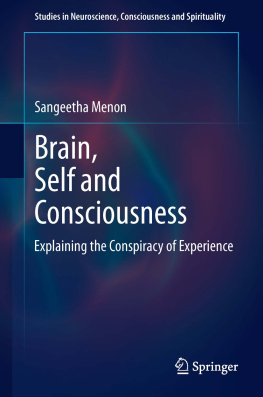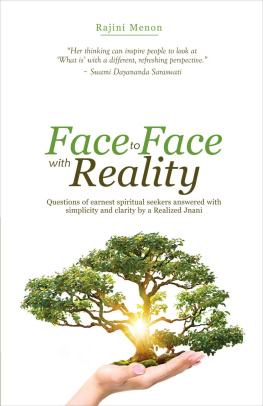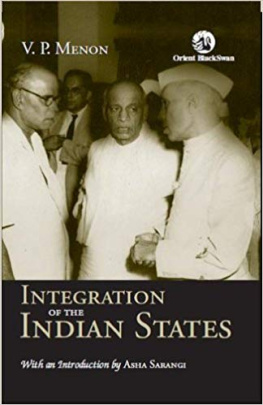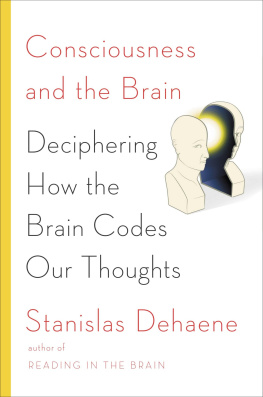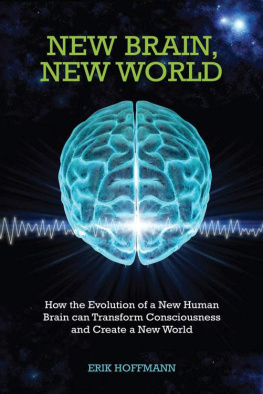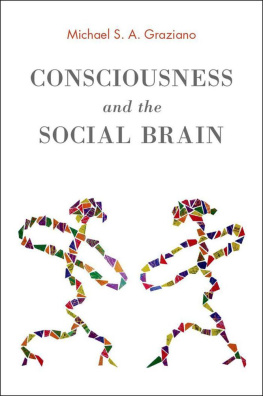1. The Problematic of Consciousness: An Introduction
Biology and philosophy are the two disciplines that raise fundamental yet provoking questions about human life. The central question that these disciplines ask in the recent times is centred on the notion and experience of the self of the person. Today brain and the self are the two phenomena that everyone, from the common person to the scholar, is looking at to unravel the puzzle of consciousness. The belief is that somehow consciousness is connected with the self of the person. It is consciousness that presents to us experiences of joys and woes. It is also our dear self that is prone to the delicate functioning of the brain that directs the conscious states that you and I experience, and also the possibility of going into unconscious states due to neural dysfunctions. In all these the centre point is the experiencer along with the experience. It is the most intimate beholder of the experience that responds to the states of being conscious, and perhaps also to the states of unconsciousness.
While an important correlate of consciousness that all disciplines and all people are interested is awareness and different degrees of it, there are other aspects that connect consciousness and the self in finer ways. The character of the person, his or her ability to exercise choice, free will, and to take responsibility of acts and their consequences take us to the realm of wellbeing and how it is connected to the being of the person. Fundamental values that humans cherish such as truth, love and beauty are tied up with the deeper realms of our core-self, which are not amenable to reductionist filtering. Whatever theories of cognitive mechanisms we develop to explain the finer tastes and dispositions of humans, these very graces disappear when their causes and origins are explored. There is a cognitive closure that is confronted particularly when we discuss complex potentialities of the human self, such as eudaemonia, common good and altruism.
Because of the intertwined disciplinarity and complex psychological and spiritual possibilities involved, the question we askwhat is consciousness?allures us without giving satisfactory definitions for all times. The what of consciousness is accompanied by where, when and how questions. Where is consciousness located, or what is the source of consciousness? When did consciousness emerge in the evolutionary stage of life? And, how is consciousness produced? The last question that is famously described as the hard problemof who is the experiencer of the conscious experience. The who of consciousness completes the circle by bringing in once again the what of consciousness. We can respond to the who of consciousness only in terms of definitions of consciousness. Is consciousness definable and knowable? As long as a knower exists, can consciousness be completely, and in its entirety, known?
While the term consciousness projects an immediate agnostic unknowability and mystery around it, gone are those days when discussions were limited to metaphysical and literary imaginations. The comeback of medicine and neuropsychiatry to understand the secret dispositions of the human mind and to travel the paths that the human self ventures in has helped begin a new revolution in the human sciences after psychoanalysis and Darwinian evolutionary theory. The new revolution is not about theorizing the strange and unacceptable behaviours of the child and the adult but presenting the varied possibilities of the person led by the neurochemistry of the brain and the willpower of the individual.
The coming together of neuroscience and neuropsychiatry has brought to light once again the biologically ridden body on one side and the delicate nature of the personhood on the other. Whether we question the exclusive focus given to neural structures and neural process to the exclusion of the rest of the anatomy in order to explain the mechanisms behind behaviours, attitudes and emotions, the progress in brain scanning technologies has made revealing patterns of how the human mind is intricately tied with the environment and the personality of the individual. What is strikingly interesting, if we span the discoveries and path-breaking studies in the last decade in neuroscience, neurochemistry and neuropsychiatry, is how the human personhood has resurfaced as an important factor that needs inclusion and explanation in a scientific manner. In the recent times it is with equal gusto that descriptions and presentations are made about cognitive processes, emotional valences and, most importantly, experience as an integral whole, in the alleys of science. Self is the puzzle for twenty-first century biology.
In the not-too-distant past, human experience and the subjectivity of the person were anathema for empirical sciences. Keywords that ruled a biologists imagination were all inspired by the functional roles played by genetics and the physiology of the body. Only since two or three decades when qualitative attributes of experience and the personhood were brought into the laboratory to search for possible empirical convertibles and biological correlates. In this trend which is now prevalent the first and foremost entrant was cognitive science. The cognitive sciences started with explaining the act of seeing in vision and such perceptual modalities that humans and animals possess. It was then found crucial to understand the intelligence behind the act of perception to justify the variations and differences in capabilities that individuals exhibit while interacting with the environment. Thus, mind came into the forefront through the backdoor once again from the exclusive grips of philosophy and psychology. Along with the mind came in the new avatar of the body, which was seen as not completely biological but as partly conceptual and representational.
There are plenty of theories of embodiment available today in the discourse on mind and cognitive capabilities that have refashioned the understanding of the good old body which classical biology was familiar with. The concept of the body in cognitive sciences is an extremely fascinating subject that has extended from the blood and flesh of the anatomical body to objects that we desire and possess, capabilities that we can afford, and most importantly to the self that inheres in the body. This means that the difference and distance between the traditional ideas about the body and the body-dweller are dwindling. The body is the subject and the living person. What is bereft of the body is given embodiment with powerful structures of phenomenology.

